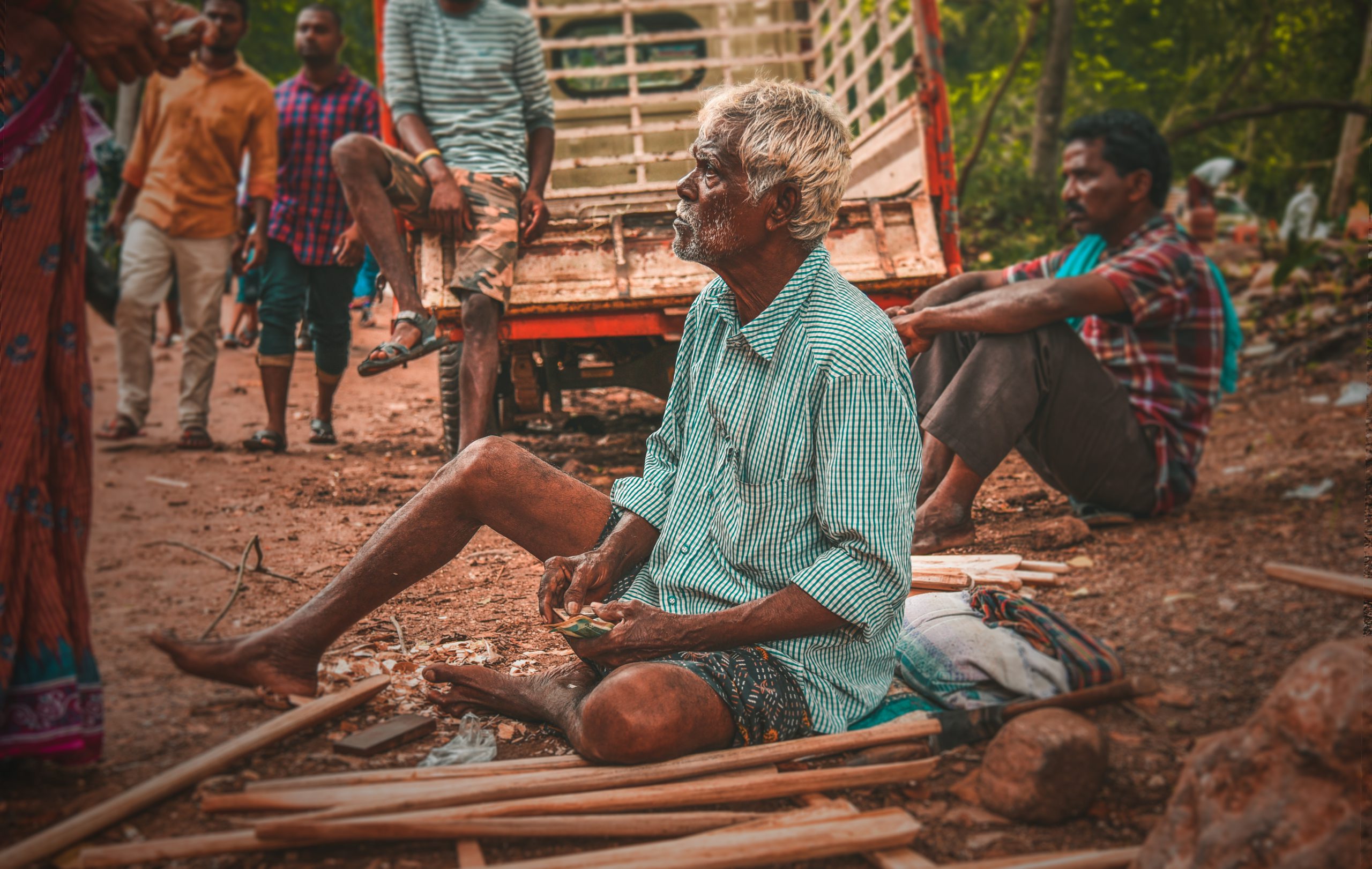HUNGER and malnutrition among the elderly in India is a critical issue that demands urgent attention. Despite progress in reducing overall hunger and malnutrition in the country, elderly individuals often face unique challenges that contribute to their vulnerability regarding food security and nutrition. Hunger and malnutrition among the elderly can be attributed to several factors. One significant factor is poverty. Many elderly individuals in India live in poverty, lacking the financial resources to meet their basic needs, including nutritious food. Limited income and inadequate social support systems make it difficult for them to access sufficient and quality food, resulting in hunger and malnutrition.
The “Longitudinal Ageing Study in India (LASI)” Wave-1 (2017-18) report of the Ministry of Health and Family Welfare assessed the nutrition status of senior citizens in the country. The report says that in India, more than a quarter of those aged 60 and above are underweight (27%), and a fifth of the elderly are overweight/obese (22%), indicating a dual burden of undernutrition and overnutrition among the elderly in India.
Inadequate access to healthcare is another contributing factor. Poor health and age-related complications can affect the appetite, digestion, and absorption of nutrients in the elderly. Lack of proper medical care and limited access to specialized healthcare services further exacerbate the problem, hindering their ability to address nutritional deficiencies and health issues.
Social isolation is a prevalent concern among the elderly, significantly impacting their food security and nutrition. Many elderly individuals live alone or face neglect as their family members migrate for work or are unable to provide adequate care. This isolation leads to a lack of support in meal preparation, grocery shopping, and ensuring a balanced diet.
Loneliness and mental health issues associated with social isolation also affect their appetite and overall well-being.
Limited awareness
Additionally, limited awareness about the nutritional needs of the elderly, both among individuals and policymakers, contributes to the problem of hunger and malnutrition. Specific dietary requirements, such as increased protein intake and adequate micronutrients, are often overlooked or not given due importance. The lack of targeted interventions and nutritional support programs for the elderly further hinders their ability to overcome hunger and malnutrition.
Addressing hunger and malnutrition among the elderly requires a multi-faceted approach. Firstly, there is a need to strengthen social welfare systems to provide financial support and social protection to elderly individuals living in poverty. This can include the provision of pensions, subsidies, and targeted assistance programs to ensure access to nutritious food.
Improving healthcare services and accessibility for the elderly is crucial. This includes regular health check-ups, early detection and management of age-related health conditions, and the availability of specialized geriatric care. Integrating nutrition assessment and counselling into healthcare services can help identify and address nutritional deficiencies among the elderly population.
To tackle social isolation, community-based support systems should be strengthened. This can involve establishing community centres or day-care facilities where the elderly can interact, engage in social activities, and access nutritious meals. Volunteer programs and initiatives that connect the elderly with local communities can also help reduce social isolation and ensure regular meals and companionship.
Importance of educational campaigns
Educational campaigns and awareness programs targeting both the elderly and their families can play a pivotal role in improving nutrition among the elderly. Promoting knowledge about specific dietary requirements, the importance of micronutrients, and cooking techniques that maximize nutrient retention can empower individuals and families to make informed choices regarding their nutrition.
Collaboration between government agencies, NGOs, and healthcare providers are crucial to address the complex issue of hunger and malnutrition among the elderly. By prioritizing this issue and implementing targeted interventions, we can ensure that elderly individuals in India have access to sufficient, nutritious food, and are protected from the adverse effects of hunger and malnutrition. Providing them with adequate support and care is a matter of dignity and justice and essential for building a healthier and more inclusive society.
NGOs’ role in addressing hunger and malnutrition
NGOs play a crucial role in addressing hunger and malnutrition among the elderly in India. Their dedicated efforts and targeted interventions contribute significantly to improving the nutritional status and well-being of this vulnerable population.
Firstly, NGOs can provide direct food assistance to elderly individuals who are suffering from hunger and malnutrition. They often distribute food packages, cooked meals, and nutritional supplements to ensure that the elderly have access to sufficient and nutritious food. This support helps alleviate immediate hunger and improves the overall nutritional intake of the elderly.
In addition to providing food assistance, NGOs focus on enhancing the knowledge and awareness of the elderly about nutrition and healthy eating practices. They conduct workshops, training sessions, and awareness campaigns to educate the elderly on the importance of balanced diets, adequate calorie intake, and specific nutritional requirements for their age group. By empowering the elderly with knowledge, NGOs enable them to make informed choices regarding their diet and overall nutrition.
NGOs also work towards improving the accessibility of healthcare services for the elderly, addressing underlying health issues that contribute to malnutrition. They collaborate with healthcare providers to offer regular health check-ups, screenings, and nutritional assessments for the elderly. Through these initiatives, NGOs can identify and address health conditions that may hinder proper nutrition and provide appropriate medical interventions and counselling.
Community engagement is another vital aspect of NGO efforts in addressing hunger and malnutrition among the elderly. They establish community kitchens, meal delivery programs, and senior centres where the elderly can gather, socialize, and access nutritious meals. These initiatives provide food and combat social isolation, ensuring that the elderly have a supportive and caring environment that promotes their nutritional well-being.
NGOs also advocate for policy changes and engage with government agencies to prioritize and address the issue of hunger and malnutrition among the elderly. They raise awareness about the specific needs of this population, highlighting the importance of social protection programs, affordable healthcare, and nutritional support. By collaborating with policymakers and influencing public opinion, NGOs can bring about systemic changes that benefit the elderly and address the root causes of hunger and malnutrition.
Overall, NGOs play a crucial role in addressing hunger and malnutrition among the elderly in India. Through their direct interventions, education, healthcare support, community engagement, and advocacy efforts, they make a significant impact in improving the nutritional status and overall well-being of this vulnerable population.
Their dedication and commitment to this cause are instrumental in creating a society where all elderly individuals have access to sufficient and nutritious food, leading to healthier and more fulfilling lives.
Support Mission: Feed The Hungry
–
Give’s mission is to “make giving bigger and better.” Give is the most trusted donation platform in India for fundraisers and crowdfunding campaigns. Through our technology solutions, we enable individuals and organisations to fundraise and donate to a cause, charity or NGO with trust and convenience. Give’s community of 2.7M+ individual donors and 300+ organisations supports 3,000+ verified nonprofits with 80G deduction and serves 15M+ people across India. Find a fundraiser today!

Kumara was a professional journalist for over 15 years, with stints in The Telegraph and Reader’s Digest. He grew up hating maths and physics. He is a post-graduate in history. Kumara believes that cricket and Seinfeld have answers to most questions that life throws at you.
Discover more from
Subscribe to get the latest posts sent to your email.

